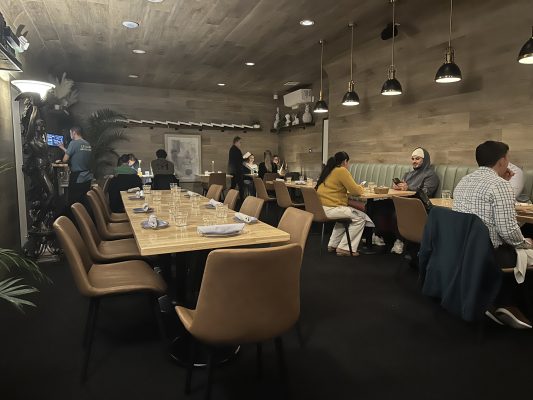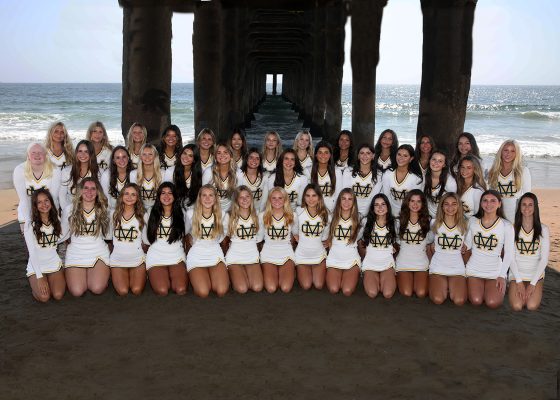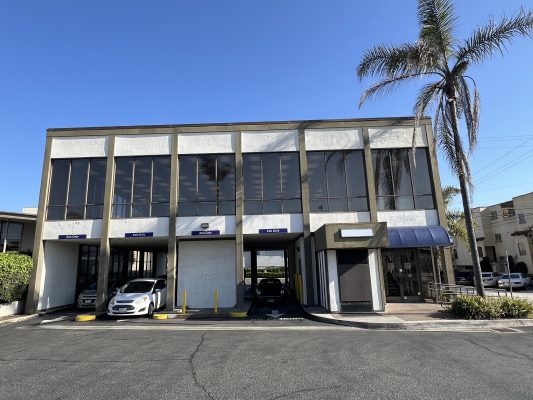
Arda Darakjian Clark comes from a family of educators.
Her father and grandmother were teachers. Her great grandfather was a college professor – as is her sister – and her great grandmother was a school principal. Her uncles, aunts, cousins are mostly teachers, or writers.
“That has just been my family story,” Clark said in an interview last week.
But Clark is perhaps best known at this point for educational experience of another member of her family – her husband, Carl Clark, who has served two terms on the RBUSD school board and is about to term out. Clark’s intention is to continue what she believes her husband has helped begin – the transformation of RBUSD from a very good school district to a great one.
Clark, a real estate agent and author of two educational books for middle school students, said she almost ran in 2002 but instead decided to focus on raising her kids and taking care of her aging parents. Now, with her kids grown and her parents passed on, she feels the time is right.
“I’ve watched Carl for the last eight years,” she said. “I am not just a spouse. I am there, all the time. I’ve always been there, always been a part of it in one form or another. So I just thought having had the benefit of seeing what has happened over the last eight years, and having the conversations at home – it just seemed wrong not to step up and do it.”
Clark has a passion for public education that derives from her family’s experience. She is an immigrant whose family survived the Armenian Genocide. She moved to the United States from Syria when she was 13. She remembers being so enthralled with U.S. history that she hung a parchment copy of the Declaration of Independence on her bedroom wall (next to a Beatles poster) as a teenager.
“To me, even back then, the idea that people sat down and had these thoughts – the Declaration of Independence – and wrote them down and sent it to the English king, I was fascinated by that,” Clark said. “I definitely see public education as the cornerstone of democracy. I know it’s kind of a corny thing to say, but it’s also a reality, and I do see it under attack. I don’t like charter schools, I don’t like vouchers. I mean, I think we should support public schools.”
One of the focuses of Clark’s campaign is how to support public schools during a time of budget duress. She argues that regardless of the outcome of deliberations at the state level – the district faces budget cuts of either $2.8 million or $160,000, depending on the success of Gov. Jerry Brown’s ballot initiative – the district can sustain no more cuts that impact the classroom.
After three consecutive years of cuts totaling $8.8 million, Clark said the district needs to find other revenue sources to see its way through the current crisis. She suggests exploring the utilization of the so-called “Aviation funds” as a budget reserve that could free up general fund money and stave off classroom cuts. The Aviation funds — $6.2 million that has been kept from the sale of the former Aviation High School – are currently restricted to capital outlay by the state education code. Clark said she has contacted Assemblywoman Betsy Butler’s office about obtaining some flexibility in the use of such funds.
“That money is just sitting there,” Clark said. “We don’t have any immediate or foreseeable need for capital reserves because of Measure C – the facilities are in the process of being modernized, so there is really no need for us to hold on to that $6.2 million.”
“There is nothing left to cut,” Clark added. “The thinking seems to be, ‘Where can we cut? Who can we cut?’ I think we need to shift this thinking to ‘How can we get more resources coming in?’ It’s the questions you ask that matter. I think the economy will improve, and it’s a matter of buying some time.”
Clark hopes to help the district expand its educational offerings. She supports bringing the International Baccalaureate program to the high school. The program, a separate degree program that emphasizes a more international curriculum, critical thinking, and community service, has been opposed by several respected teachers who question its cost and applicability for the so-called “middle student” who may not be going to college.
“I think the teachers need to be brought more fully into the process of implementation,” Clark said. “But it should happen. I think the IB program would be good for the high school, and really, for the community.”
Clark said that the IB will actually appeal to a broad array of students – including “middle students” – and help the district retain enough of those students who currently live in North Redondo and attend Mira Costa to pay for itself (the district calculates 17 students enrolled would pay for the program’s $160,000 cost). She also supports expanding offerings in STEM courses – science, technology, engineering, and math – and adding computer science to the curriculum.
“I think we should offer more technology courses throughout the district, but especially at the high school,” she said. “I know we want every high school student to be college ready, but some won’t follow the academic path, and they should have some alternatives, whether its SCROC (the Southern California Regional Occupation Center) vocational training or just technology type courses at the high school. I mean, you have to use a computer in everything you do….So I’d really like to see a computer science course.”
Both Clark and her husband are real estate agents, and it was one of his priorities as a school board member to generate more income from properties at 320 Knob Hill and 200 N. Pacific Coast Highway. She agrees that this should remain a priority, but she differs a bit with her husband on the issue of Knob Hill. The board, including Carl Clark, recently voted to accept a bid for a moderate-income housing project.
“I would have voted to reject all the bids and see if we can get something else,” Clark said. “You know, I’d love to see a cultural center there. People say, ‘Well, what about a university extension?’ I’m sure it’d be great, but those bids have to come in. The school board can’t create them out of thin air…It’s a public property and I think we do need to keep the neighbors in mind. At the same time, the district needs money.”
“As far as affordable housing, I am not necessarily opposed to it,” Clark added. “I think there is a misconception about what affordable housing is. We are not talking about building slums, and we need moderate income housing….I would really like to see some more options but they just don’t seem to be materializing.”
Clark said the experience of watching her husband serve on the board for eight years has helped prepare her for the job, but she also said that her election to the board would not represent a de facto continuation of his term.
“I think that generally speaking I am probably more of a consensus builder,” Clark said. “I think Carl is more of an independent thinker, whereas I probably would communicate more and try to get people to see things from other people’s perspectives and get them all to agree. I think I would make more of an effort in that area.”
“We are definitely different people, and though it’s not like there are huge areas of disagreement, at times we approach things differently,” Clark added. “Anybody that knows us knows we are two very different people. The ‘two shall become one’ did not happen.” ER










